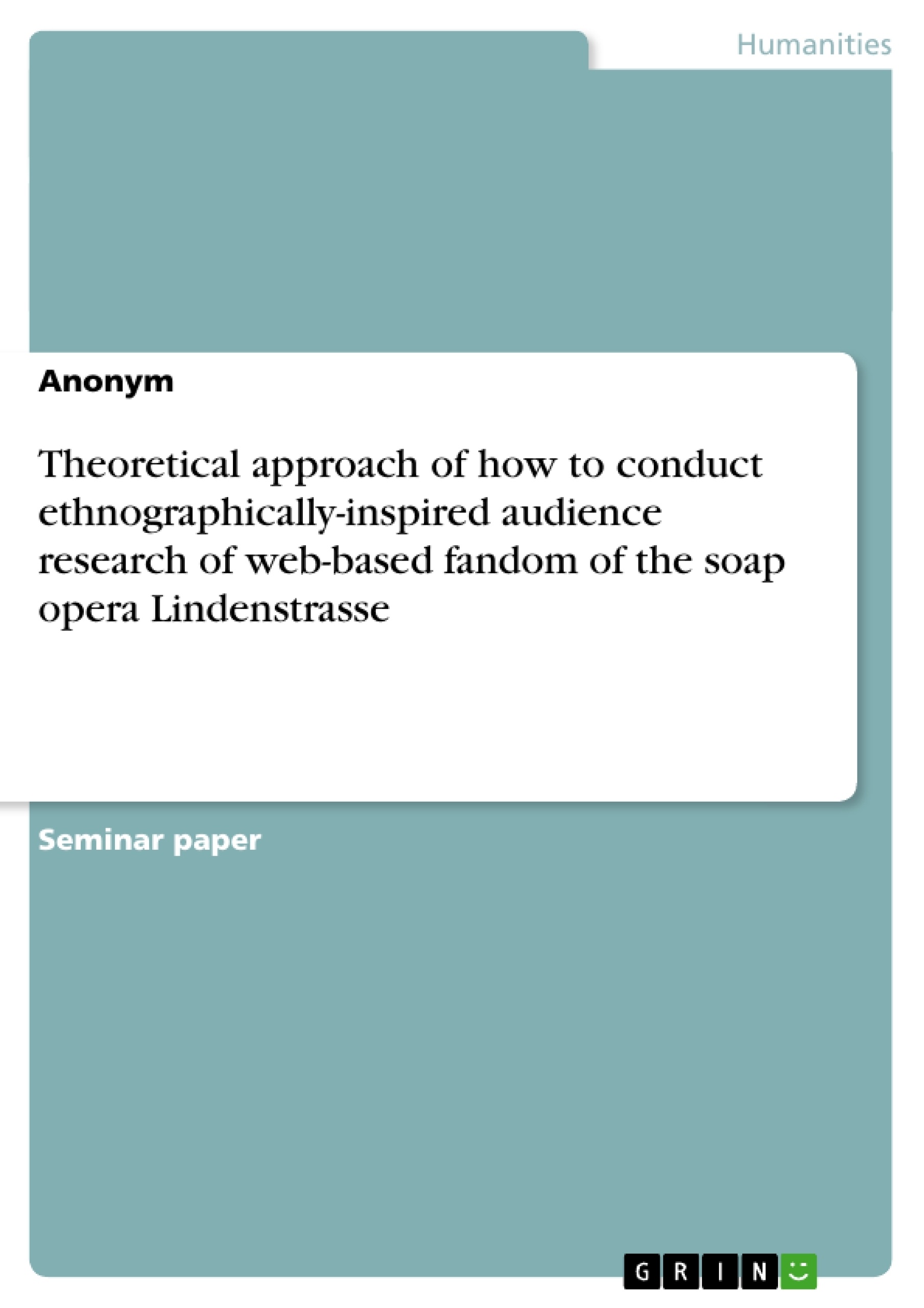Ethnography is the central method of anthropology. Nevertheless, it has often been
borrowed and adapted by other disciplines. While there is a central body of
methodological texts within anthropology, this is not the case in relation to the use of
ethnography outside the discipline and in relation to online fandom in particular.
This “absence of a central corpus of methodological texts” (Ruddock 1998, p.297)
results in a broad range of diversity in so-called ethnographic writing. Harry F.
Wolcott’s struggle (in Van Maanen 1995:92) to decide whether to call his study The
Man in the Principal’s Office (1973) ethnographic or not, characterises very clearly
the fuzziness and complexity of the method. Even when contemporary ethnographies,
such as virtual ethnography, are intended to feature a much narrower focus, some of
these difficulties remain.
The first ethnographers in the middle of the 19th century were the so-called
“armchair-ethnologists.” Often their only sources of information were travelogues of
missionaries. They accumulated their information without coming to direct contact
with the human beings that were their objects of investigation. The research scientist
only evaluated the data. This impersonal, anonymous basic approach resulted in
distorted, superficial and extremely notional representations of societies. Around
1918, the “Malinowskian revolution” in ethnography demonstrated an approach of
participant observation. The previous segregation between fieldworker and scientist
ceased, which resulted in a single person acting as reporter, researcher and analytical
scientist. Malinowski suggested that it is important not only to record the actions of
the subject of exploration but also to understand the underlying motivations.
“Ethnography has changed a lot since its origins as the method anthropologists used
to develop an understanding of cultures in distant places” (Hine 2000, p.41). One of
the last relics may be the original core approach of travelling to a foreign place and
integrating into a community or society with the aim of understanding the actions and
underlying motivations of its members. “It (ethnography) refers to a style of research
that seeks to describe and interpret a cultural or social group or system, and involves
the participation of the ethnographer(s)” (http://staff.bath.ac.uk/psssr/courses/mres
ethnography.html). [...]
Inhaltsverzeichnis (Table of Contents)
- Introduction
- The study of cyberculture
- Virtual ethnography - "real world" ethnography
- Pilot study of Lindenstrasse: About the series
- Classification of the pilot study
- Fan practices
- The absence of fan fiction
- Human-Computer-Interaction: de.rec.tv.lindenstrasse
- Face-to-face interaction: fan-meetings
- Fanzines
- Methodological aspects
- Ethical aspects and problems
- Conclusion
- References
Zielsetzung und Themenschwerpunkte (Objectives and Key Themes)
This study aims to explore the theoretical approach to conducting ethnographically-inspired audience research of web-based fandom of the soap opera Lindenstrasse. It examines the differences between "real world" and virtual ethnography, highlighting the unique challenges and opportunities presented by cyberculture. The study analyzes the fan practices of Lindenstrasse enthusiasts, focusing on their online interactions and the development of a virtual community.
- The evolution of ethnography from "armchair ethnologists" to participant observation.
- The characteristics and challenges of studying cyberculture, particularly in the context of online fandom.
- The differences between "real world" ethnography and virtual ethnography, including the influence of technology and the concept of "travel" in online environments.
- The development of fan practices and the formation of virtual communities within the Lindenstrasse fandom.
- Ethical considerations and methodological challenges in conducting ethnographic research of online communities.
Zusammenfassung der Kapitel (Chapter Summaries)
The introduction establishes the context for the study, outlining the significance of ethnography in anthropological research and the challenges of applying its principles to online fandom. Chapter 2 delves into the evolving field of cyberculture studies, discussing its historical development and different theoretical approaches, particularly the critical cyberculture perspective. Chapter 2.1 explores the concept of virtual ethnography in relation to traditional ethnographic methods, highlighting the unique characteristics of online environments and the significance of participant observation. Chapter 3 presents a pilot study of the German soap opera Lindenstrasse, focusing on the series itself, the fan practices observed, and the methodological and ethical aspects of conducting ethnographic research in this context.
Schlüsselwörter (Keywords)
This work explores the key concepts of ethnography, cyberculture, virtual ethnography, online fandom, participant observation, and the soap opera Lindenstrasse. It delves into the theoretical frameworks and practical challenges of conducting ethnographic research in online environments, particularly within the context of fan communities. The study also examines the unique characteristics of online communities and the cultural implications of technology in shaping social interaction and cultural expression.
Frequently Asked Questions
What is the central focus of this research paper?
The paper explores the theoretical and methodological approach to conducting ethnographically-inspired audience research focused on the web-based fandom of the German soap opera Lindenstrasse.
How did the "Malinowskian revolution" change ethnography?
It introduced participant observation, ending the segregation between fieldworker and scientist, and emphasized understanding underlying motivations rather than just recording actions.
What is "armchair ethnology"?
Armchair ethnology refers to early 19th-century researchers who evaluated information from travelogues and missionaries without direct contact with the people they investigated.
What are the key differences between real-world and virtual ethnography?
Virtual ethnography faces unique challenges such as the influence of technology on social interaction and the conceptualization of "travel" within online environments.
What fan practices of Lindenstrasse are analyzed in the study?
The study analyzes online interactions (de.rec.tv.lindenstrasse), the absence of fan fiction, face-to-face fan meetings, and fanzines.
- Quote paper
- Anonym (Author), 2003, Theoretical approach of how to conduct ethnographically-inspired audience research of web-based fandom of the soap opera Lindenstrasse, Munich, GRIN Verlag, https://www.grin.com/document/16686



